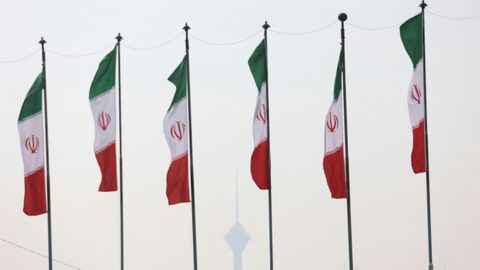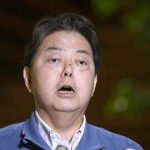The discussions take place as Trump’s impending return to the White House on January 20 has brought increased attention to Iran’s nuclear program.
Seven days before US President-elect Donald Trump takes office, Iran is scheduled to hold nuclear negotiations with France, Britain, and Germany on Monday.
These are the second round of negotiations over Iran’s nuclear program in less than two months after Tehran and the three European powers, known as the E3, met in secret in Geneva, Switzerland, in November.
The foreign ministry of Germany declared, “These are not negotiations,” Iran has emphasized that the discussions are only “consultations” in the same way.
Esmaeil Baqaei, the spokesperson for Iran’s foreign ministry, stated at a weekly press conference that the discussions, which are set for Monday and Tuesday, will cover a “wide range of topics.”
In addition to “listening to the… topics that the opposite parties want to raise,” he stated that “the primary objective of these talks is to remove the sanctions” on Iran.
The E3 nations “are continuing to work towards a diplomatic solution to the Iranian nuclear program, the progress of which is extremely problematic,” according to France’s foreign ministry, which cited the meeting on Thursday.
The discussions take place as Trump’s impending return to the White House on January 20 has brought increased attention to Iran’s nuclear program.
Trump had adopted a “maximum pressure” strategy during his first term, pulling the US out of a historic nuclear agreement that placed restrictions on Iran’s nuclear program in exchange for the lifting of sanctions.
Tehran complied with the agreement until Washington withdrew, after which it started to renounce its obligations.
European officials have frequently voiced their unhappiness with Tehran’s non-compliance, and attempts to resurrect the 2015 nuclear accord have since failed.
“Constructive discussions”
French President Emmanuel Macron stated last week that Iran’s nuclear program is “bringing us very close to the breaking point” due to its acceleration. The remarks were later denounced as “baseless” and “deceitful” by Iran.
Britain, Germany, and France charged Tehran in December with amassing “unprecedented levels” of high-enriched uranium without “any credible civilian justification.”
“We reiterate our determination to use all diplomatic tools to prevent Iran from acquiring a nuclear weapon, including using snapback if necessary,” they stated.
The Joint Comprehensive Plan of Action (JCPOA), which was signed in 2015, includes a snapback mechanism that permits signatories to reimpose UN sanctions on Iran in the event of “significant non-performance” of commitments.
The ongoing diplomatic efforts are made more urgent by the fact that the option to activate the mechanism expires in October of this year.
Iran is now the only non-nuclear weapons state with 60 percent enriched uranium, according to the International Atomic Energy Agency (IAEA), a nuclear watchdog. This is because Iran has expanded its production of enriched uranium.
Compared to the 90 percent needed for an atomic bomb, that amount is very close.
Iran disputes any plans to create atomic bombs and insists that its nuclear program is only for peaceful uses.
Additionally, it has frequently stated that it is willing to resurrect the agreement.
Since taking office in July, President Masoud Pezeshkian has advocated for the revival of the pact and the lifting of his nation’s isolation.
Abbas Araghchi, the foreign minister, also stated his readiness “to engage in constructive negotiations” in a recent interview with China’s CCTV.
“The formula that we believe in is the same as the previous JCPOA formula, namely, building trust on Iran’s nuclear programme in exchange for lifting sanctions,” he stated.






